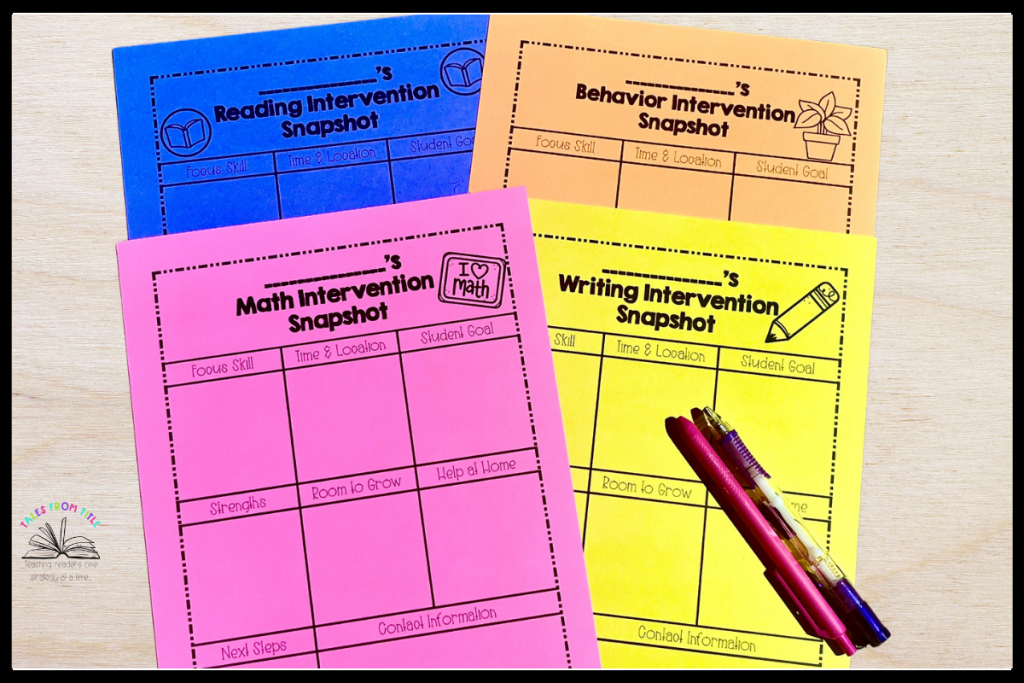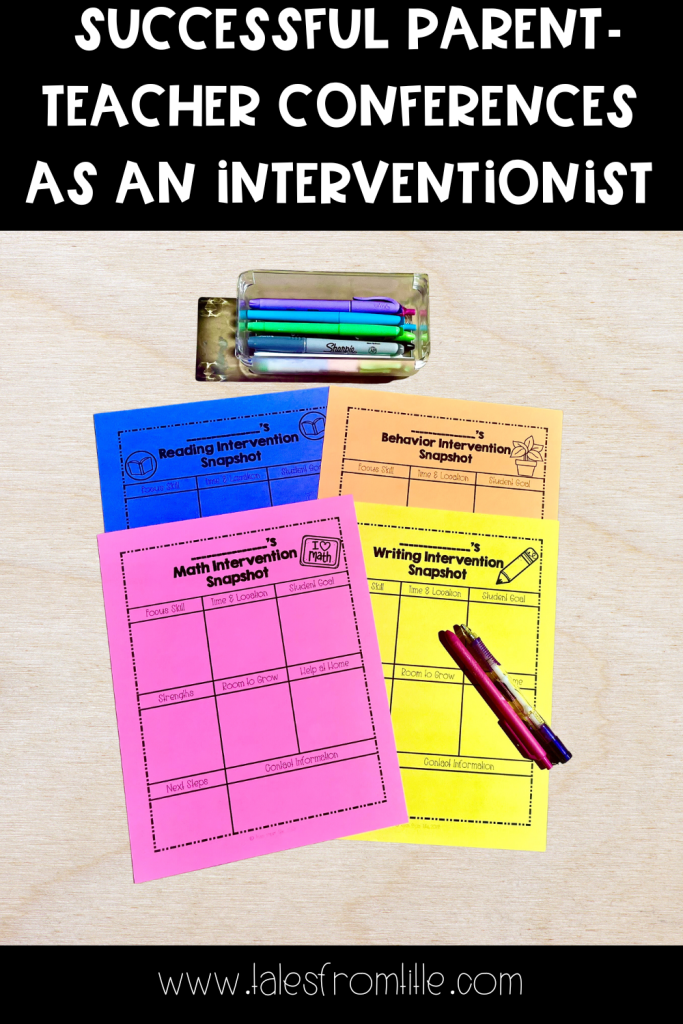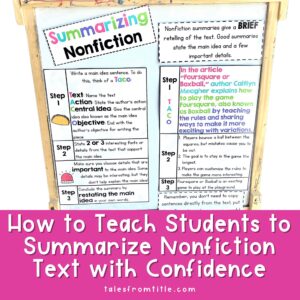Ah, parent-teacher conferences! They can be a rollercoaster ride for any educator, but for interventionists, these meetings take on an extra dimension of importance, and oftentimes stress. I usually had at least 60 students I provided interventions for, and trying to check in with all of those parents at conference time can feel overwhelming and can be a scheduling nightmare. However, parent-teacher conferences can also be a valuable opportunity for us to collaborate with classroom teachers and actively involve parents in supporting their child’s reading progress.
In this blog post, we’ll explore some key strategies to ensure we make the most of these conferences. So, grab a cup of coffee or your favorite drink and let’s dive in!
Know your District/Building Expectations
Before getting too far ahead of yourself, it’s crucial to get a clear understanding of your district or building’s expectations. Every district and sometimes even schools within the same district may have different guidelines or protocols in place for conferences. Familiarize yourself with any relevant policies, such as specific topics to be discussed or required documentation. Check in with your building principal to make sure you know exactly what is expected of you (I didn’t do this my first year as a reading specialist and I should have. More on that later.) This knowledge will help you create a plan that fits with the school’s overall goals and expectations.
In the first district I worked at, parent-teacher conferences took place on two nights. All teachers were expected to stay and you scheduled meetings with all of your students’ parents on those two evenings. Our reading specialist got schedules from classroom teachers for each night and made a plan for the conferences she would be able to sit in on. Then, she made alternative arrangements for the remainder of the students she met with.

When I became a reading interventionist in a new district, you had a two week window to schedule your conferences. With the two week window, planning to sit in on conferences with the classroom teacher is hard. I tried to do that my first year, and it didn’t work. I was at school late every night for two weeks which was not okay. I didn’t know how to set boundaries, and I was super worried about being in trouble for missing a conference.
You are probably thinking, “Kristi, I don’t really care how two districts you worked at conducting conferences!” I wanted to share these two scenarios with you because as a reading interventionist, these two different scenarios make a huge difference in how you plan for your conferences. So, check in with your building principal and make sure you know what is expected of you in regards to conferences so you aren’t like me and living at school for two weeks.

Communicate with Classroom Teachers
Collaboration is key when it comes to parent-teacher conferences. Reach out to the classroom teachers in advance to keep the lines of communication open. Make sure they understand your game plan for parent teacher conferences so they aren’t surprised and unsure of what is going on. If you are planning to sit in with them on conferences, collaborate so you aren’t overwhelming parents with so many concerns causing them to leave the meeting feeling defeated.

Make your Plan
Now that you know what is expected of you, and you have communicated with classroom teachers, it’s time to make your master plan. Print out a calendar or daily planning sheet with time slots so you can have a schedule to follow. If you are participating in conferences with classroom teachers, plug in the conferences you will be able to participate in on your schedule. If you are conducting conferences without classroom teachers, set up times to meet with parents and add them to your planning sheet.
Once you have your plan for a meeting schedule, start a note sheet for each student so you have talking points for the conference. This will help you stay on topic and keep your conferences running smoothly and efficiently. Review student’s reading data, which may include running records, diagnostic assessments, or progress monitoring reports. Identify the specific areas of strength and weakness in their reading abilities. Add this information to your notes sheet.
If you are in need of a way to have clear, concise notes, check out my intervention snapshots. This freebie gives you a roadmap to talk about student goals, strengths, weaknesses, ways parents can help at home, and the next steps you are planning to take at the end of a round of intervention. They also provide parents with tangible information they can take with them and look back on when needed.

Conclusion
Parent-teacher conferences as a reading interventionist present a unique opportunity to collaborate, engage, and empower parents in their child’s reading journey. By understanding district expectations, communicating effectively with classroom teachers, and developing a focused plan, you can ensure these conferences are valuable for everyone involved.






